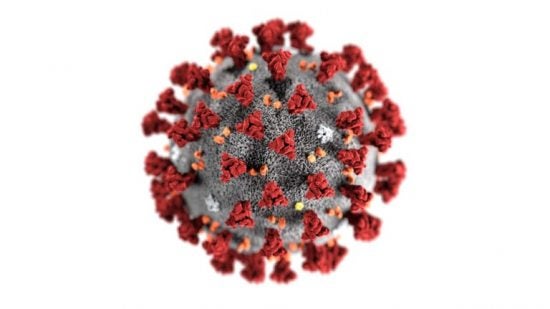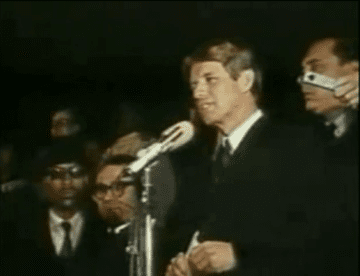
COVID-19. Image from Alissa Eckert and Dan Higgins/CDC, courtesy of Statnews.
Like with any crisis, COVID-19 will test who we are as individuals and a society. Will we be driven by our fears and our darker instincts, even prejudices? Or will we act with solidarity and empathy, looking out for one another, and being the best people we can be?
This is, in a way, another post-9/11 moment. One critical question back then was how we would treat our Muslim neighbors after the attacks. Would we view them as terrorists, as our enemies, simply because the nineteen men who perpetrated the evil of September 11 were Muslim? Or would we embrace members of the American Muslim community as the full members of the American community that they are, knowing that they, like those of us who are not Muslim, were traumatized by the attacks on our nation?
Sadly, as we know, the number of hate crimes and other instances of discrimination against Muslims soared. Beyond these crimes, Islamophobia rose, with such manifestations as absurd fears of Sharia law in the United States and opposition to a mosque being built in New York City near Ground Zero. Such disregard of our fellow human beings was of course very far from universal; President Bush himself emphasized just days after the attack, “Islam is peace.” But many Americans failed the moral test that confronted us.
I remember how I tried to come to terms with what had just happened, knowing that we could not bring back to life the thousands of people killed that day, nor undo our national trauma. So I looked to the words of Robert F. Kennedy at an earlier moment of national pain, Martin Luther King’s assassination: “It’s perhaps well to ask what kind of a nation we are, and what direction we want to move in.” His answer then, as our answer has to be now, was to create a United States that was one of “love and wisdom, and compassion toward one another, feeling of justice toward those who still suffer in our country.” What he asked us to do in 1968, and we needed to do in 2001, was to infuse meaning into senseless violence by using the tragedy that struck us by working to create a more loving, just, and peaceful nation.

Robert F. Kennedy’s delivers remarks following assassination of Martin Luther King, Jr. Image courtesy of Wikipedia.
While COVID-19 is in many ways worlds different from a terrorist attack or assassination, we would again do well to ask ourselves Senator Kennedy’s question. For many people in our country (and elsewhere) have begun to travel down the road of fear, hate, and destruction, rather than solidarity, compassion, and love. Worst are the assaults on people of Chinese or other Asian descent. Far more common, though, are quiet acts of discrimination – a dirty look, Chinatowns empty, Chinese restaurants without customers.
I have been told of people I know, friends of my family in the town where I grew up in New York, avoiding near-empty Chinese restaurants there. Ours being a fairly liberal community, I don’t think those same people nearly two decades ago would have turned on their Muslim neighbors. Yet they now shun their Chinese-Americans neighbors. Back then, they would have agreed with President Bush that “Islam is peace.” But now, unfounded fears were getting the best of them.
In addition, through our individual responses and political engagement, we must protect against another instinct that fear can drive: looking after ourselves with little regard for the needs or concerns of our neighbors. Yet many of our neighbors may well be more vulnerable than we are, like people who are homeless and may have limited access to sanitation, and people who live in confined quarters like prisons and long-term care facilities.
So, answer Robert Kennedy’s call with your own actions. Write to your representative in Congress, or to officials in your state or town, to insist that laws against discrimination are vigorously enforced, and that those whom we as a country so often leave behind are not left behind now – like low-income workers, often without sick leave, people who have no or inadequate health insurance, and people who are homeless. Insist that in this time that is fast becoming an era that is not quite like anything we have experienced before, our government – our government – is a government for, and that ensures the health, safety, and well-being of, all of our people. If you are responsible for making sure your workplace has enough soap, you could also check on a nearby homeless shelter and its supply. Check to see that your elderly neighbor, or a neighbor with a disability, will have enough to eat in the event of a quarantine or if they choose to limit their movement. Follow public health advice to keep yourself and those around you healthy. And if you decide to go out to eat, head towards your local Chinese restaurant.
Our nation is deeply divided. Hate has resurged since 2015. People of my own religious tradition, Judaism, have once more become one of hate’s most common targets. In such an atmosphere, I wonder whether it is too much to expect that we will focus on what we all have in common, our humanity, and that we will be guided by our own humanity in our actions. I hope not. It is certainly not too much to ask of each other, and of ourselves.



